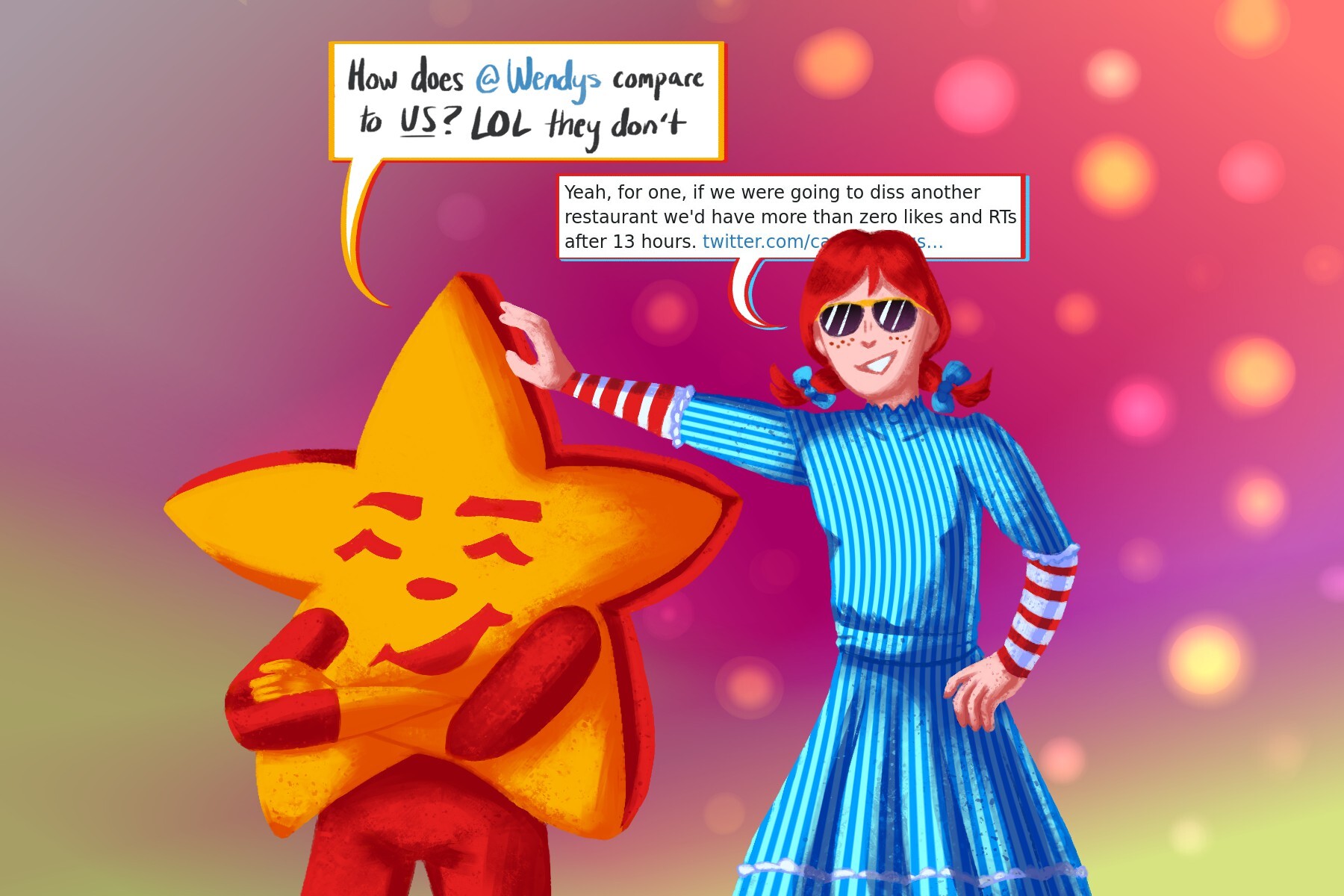Gone are the days when a quick trip to a fast-food restaurant was simply about satisfying hunger. Fast food brands have revolutionized their marketing approach, engaging young consumers through relatable campaigns, snarky tweets and viral memes. No longer confined to Super Bowl commercials, these brands’ ad campaigns have tapped into the humor and vernacular of a generation.
“I started eating at Wendy’s more because their tweets are hilarious. It’s funny to see such a huge brand become relatable, even if it’s only through social media,” reflects Alexis Johnson, a 22-year-old resident of Atlanta, Georgia. As a member of Generation Z, Alexis vividly recalls a time when brand performance marketing disrupted her Saturday morning cartoons. In the past, big corporations seemed impersonal and unrelatable.
“As a child, I’d watch TV and feel annoyed by commercials interrupting SpongeBob or some other show on Nickelodeon,” recalls Alexis. “Burger King would advertise their food on the television, but I was really only interested in the toys. I wasn’t interested in following the brand or wanting to get there because they seemed relatable.”
Kurt Kane, former President & Chief Commercial Officer of the Wendy’s Company, echoed Alexis’s statement, emphasizing the need for social media engagement in the digital age of marketing.
“Social media, you have to earn, and particularly engagement, so when you think of how far and wide our social media communications have traveled, it doesn’t take a big investment for that to happen. It takes being clever and being confident and being pointed and engaging. So you have to earn those impressions and those impressions are a lot more valuable than just a typical 30-second television spot,” Kane shared with The Challenger Project in November 2019.
Fast food companies are actively striving to establish resonant connections with Gen Z through social media. One notable example is Wendy’s, which has adeptly tapped into the unique language and database of cultural references used by Gen Z. Expressions like ‘babe, wake up’ and ‘#NewProfilePic’ have seamlessly infiltrated Wendy’s social media platforms, most famously on Twitter.
“I love Wendy’s for their hilarious comebacks. It’s even more funny how Wendy is technically a child, yet she’s making all of these big moves on Twitter against other companies like Burger King,” reflects Sarah Smith, a 19-year-old college student from New York. “It’s refreshing to see a brand that understands our generation’s humor, which is often misunderstood by older people. I’m more likely to buy a meal with a brand that I vibe with, even if it’s only through a tweet.”v
With an impressive 3.8 million Twitter followers, Wendy’s has surpassed competitors like Burger King and Chick-Fil-A, who have garnered less than 3 million followers, respectively. In an era where a concise 280-character tweet can reach millions of consumers, it is clear why fast-food businesses are adopting an approach like Wendy’s.
A 2022 survey revealed that 82% of Gen Z consumers use social media to discover new brands, and nearly half of respondents reported being active on Twitter for approximately one hour per week. Mastering social media can yield significant financial gains. For instance, Wendy’s reported a 49.7% increase in profit, amounting to $64 million in 2017, after using Twitter as a marketing strategy. Other companies have sought to emulate this approach to boost their earnings in a short time.
However, not all attempts at relatable marketing resonate with Gen Z. Grubhub’s 2020 commercial, “Delivery Dance,” received widespread criticism for its awkward and outdated dance moves. Among the most common concerns was simply the failure to focus on the advertised deal, resulting in the commercial becoming a meme rather than effectively conveying the intended message about Grubhub Perks.
Despite the commercial’s blunder, Grubhub’s revenue remained unaffected, with a gross revenue of from the previous fiscal year. Nonetheless, the advertisement serves as a cautionary tale about the risks of falling behind the times.
Fast-food brands’ shift toward relatable marketing signifies a new era of engagement with younger consumers. The ability to understand and adapt to Gen Z’s preferences and sense of humor holds the key to success in today’s increasingly digital market.
















